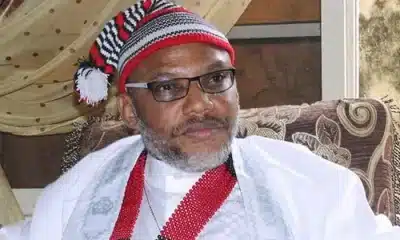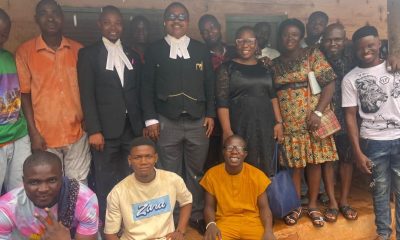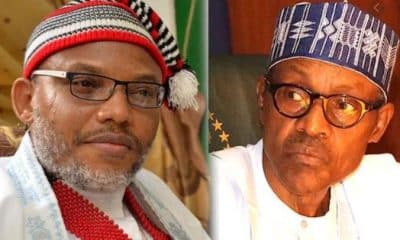Nigeria News
Court Passes Judgement On Suit Seeking To Force Exit Of Igbo From Nigeria

Justice Inyang Edem Ekwo of the Federal High Court in Abuja has dismissed a lawsuit filed by a Coalition of Northern Groups seeking the removal of Igbos from the Southeast region of Nigeria.
The lawsuit, brought by a group of elders and politicians from the North, led by Nastura Shariff, Balarabe Rufa’i, Abdul-Aziz Sulaiman, and Aminu Adam, was rejected by the Judge due to the plaintiffs’ consistent absence from court to present their case.
Naija News learnt that none of the plaintiffs appeared in court during the proceedings and were not represented by legal counsel.
Upon reviewing the case file, Justice Ekwo discovered that the Northern groups had not attended court since 2022 and had no legal representation.
In a concise ruling, the Judge concluded that it was evident that the plaintiffs had abandoned their lawsuit.
As a result, Justice Ekwo dismissed the case due to the lack of diligent prosecution.
The group from the Northern region has taken legal action to request the Senate President and Speaker of the House of Representatives to expedite the departure of the southeastern region from Nigeria.
They emphasized that this action should be completed prior to finalizing the amendments to Nigeria’s 1999 Constitution. The plea for secession was presented in a lawsuit identified as FHC/ABJ/CS/538/2021, which was initiated by a coalition of elders and politicians from the North.
Within the lawsuit, they argued that allowing the Igbo people to secede from Nigeria would help in ending violence and devastation in the South-East.
Furthermore, they elaborated that this move would prevent a recurrence of the 1967-1970 Civil War in Nigeria, which resulted in widespread loss of lives and property.
Additionally, the groups asserted that this decision would quell the unrest caused by the Indigenous People of Biafra (IPOB), under the leadership of Nnamdi Kanu.
The group, among others, prayed for “A declaration that combined effect of the provisions of Section 4 of the Nigerian Constitution and Articles 1, 2, and 20 (1) of the African Charter on Human and Peoples’ Rights (Ratification and Enforcement) Act 2004, “is empowered to set in motion a framework for a referendum to allow the south-eastern region of the Federal Republic of Nigeria to decide on their bid for self-determination.”
They also urged the court to order the second, third, and fourth defendants (the Senate President, the Speaker of the House of Representatives, and the National Assembly) “to provide a framework that will pave way for the self-determination of the south-eastern states so as to leave the geographical entity called Nigeria before any further step is taken to amend the constitution of the Federal Republic of Nigeria.”
According to Daily Post, the plaintiffs said, “The constitution of the Federal Republic of Nigeria can be further amended at any time after the question of self-determination must have been resolved by Nigerians.”










